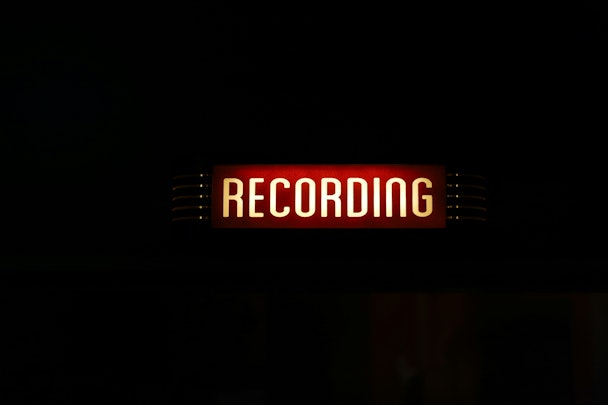Let’s think ethically about how to use AI with voice artists (not instead of them)
Testing, testing, testing. For The Drum’s entertainment focus week, Diederik Veelo of Ambassadors (and founder of AI voice artistry agency Vocoda) argues that while some might see AI as a threat, there is an ethical way to use it with voice artistry.

We must take an ethical approach to using AI with voice artistry, says Diedrik Veelo / Craig Pattenaude via Unsplash
AI is often cast as the villain in narratives of change across all sectors at the moment. In entertainment, this is no more true than with voiceover artistry. But is this portrayal accurate?
I'd like to argue it's not.
I've watched the evolution of AI in voice artistry with both excitement and caution. The entertainment industry is indeed dealing with numerous concerns around AI: the impact of digital voiceovers, deepfakes, and the potential for the technology to make human artists redundant.
But many in our field are already tackling these ethical challenges head-on, and consider it not just a responsibility but an integral part of our mission. Just look at the Hollywood actors' strike, which marked a pivotal moment in discussions about ethical AI use.
Similarly, a deal between the US screen actors' guild Sag-Aftra and an AI videogame voiceover studio marks a significant milestone. The deal sets clear guidelines for consent and secure storage of voice data and aims to ensure that emerging AI technologies benefit performers without replacing them. However, the deal has been met with its own share of controversy, mixed reactions and has raised the possibility of further strikes.
Advertisement
The path ahead for AI and voice artistry
The key to working ethically with AI and voice artistry lies in engaging directly with voice artists to ensure that they are integral to the evolution of their craft by foregrounding consent, transparency, and fairness.
As an industry, we need not only to react to changes, but to actively shape a future in which ethical practices are foundational. Vocoda, the AI voice artistry agency that I founded, aims to establish a mutually beneficial relationship between AI technology and voice artists. By redefining traditional buyout agreements, we've created a model where all parties thrive, ensuring artists are fairly compensated while their rights are protected.
Advertisement
In my experience, a model that involves voice actors in listening to the work produced and providing feedback on the AI-generated voice ensures a collaborative process, where the original artist's voice is respected and utilized as intended. Even when we incorporate multiple voice actors to achieve the desired voice, we prioritize keeping our voice actors in the loop as a means to preserve human artistry. We make sure every artist is included in the production process and fairly compensated, regardless of how much their voice is merged and mixed.
I’d love to see this model widely adopted. By embracing initiatives similar to those introduced by companies like Shutterstock, a leader in ethical digital content distribution, and Anthropic, an agency at the forefront of responsible AI development, we advocate for the right course of action.
Looking forward, adopting an ethical approach is key to shaping voice acting and the broader entertainment industry.
Suggested newsletters for you
Embracing regulation for a responsible future
Legislation and AI regulations demand all of our attention so we can proactively prepare for a future in which ethical practices are paramount. In the broader landscape of entertainment and media, similar ethical considerations are taking center stage and the call for responsible AI use is growing.
While some people might be afraid of AI, I believe it's just a very efficient tool. AI is one of the biggest and most exciting changes humanity has ever seen. It's changing how we interact with each other, solve problems, and do business. Given the rapid pace of innovation, it's essential to approach this transformation with caution. We shouldn't impede its development, but rather ensure that it is carefully managed.
The worst possible thing that can happen to AI is for legislation to block its use and development; I think the technology should be developed out in the open to avoid a concentration of power, and ensure it remains accessible to everyone.
AI in voice artistry must be guided by a commitment to ethical innovation. At Vocoda, our goal is to enhance human talent with technology, and to face the future with integrity and optimism. The choices we make today will help to shape the future of voice artistry and to underscore the necessity of steering technology towards enhancing rather than diminishing voice artistry.
Love games, movies, TV, music, and podcasts? Us too. Head over to The Drum’s dedicated entertainment focus week hub.
Content by The Drum Network member:

Ambassadors
We are a creative production company. Ambassadors for Imagination. We offer state-of-the-art solutions in the fields of Design & Animation, Visual Effects, Post...
Find out more